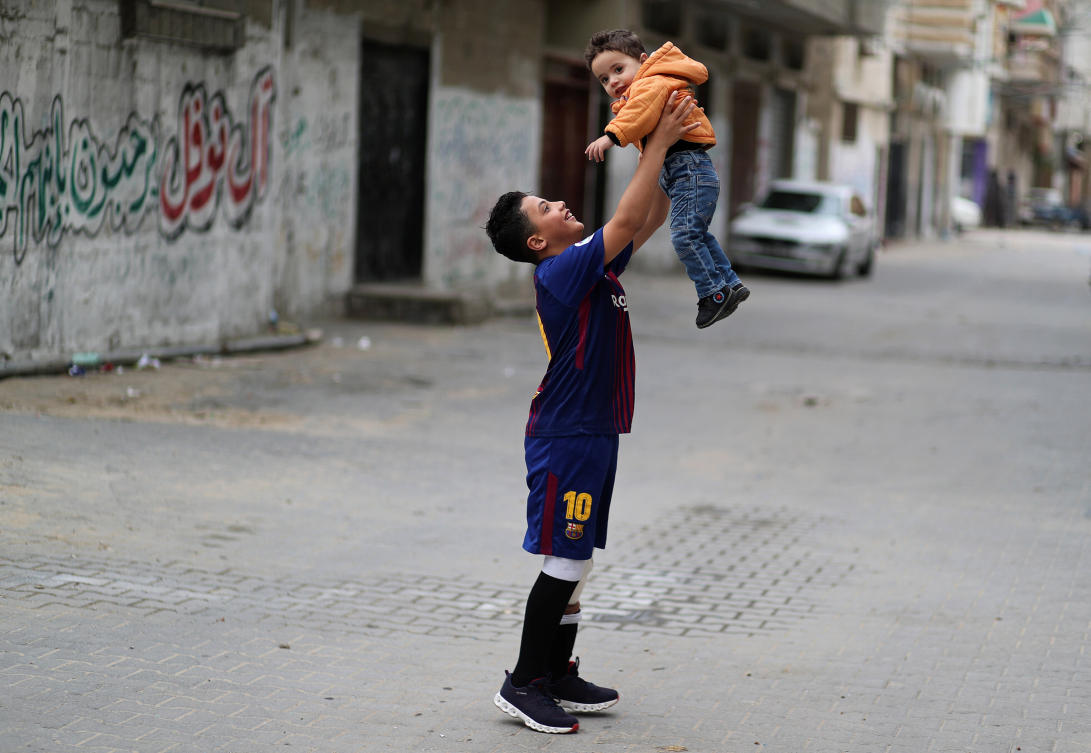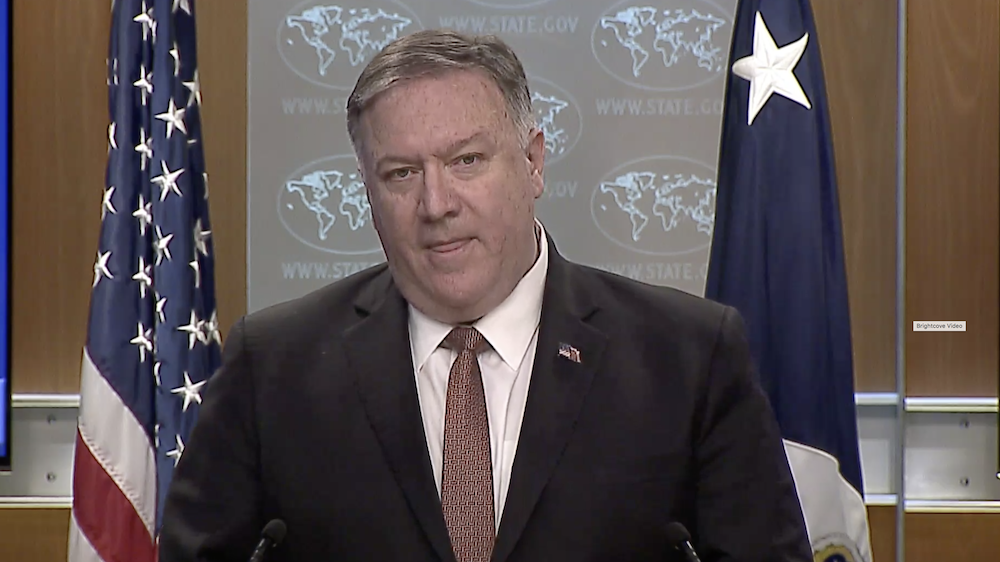TRIPOLI, Libya: The military conflict shaking Libya escalated on Sunday as forces of strongman Khalifa Haftar launched an airstrike on a suburb of Tripoli and the UN-backed government vowed a major counteroffensive.The UN called for an urgent two-hour truce for the southern outskirts of the capital to allow evacuations of civilians and the wounded.
Rivalries between the two camps threaten to plunge the country into a full-blown civil war after Haftar on Thursday launched an offensive on Tripoli.
Libya has been riven by chaos since the NATO-backed uprising in 2011 that killed Muammar Qaddafi, with rival administrations and armed groups vying for power.
Repeated attempts to find a peaceful solution have failed.
After a pause overnight, fierce fighting flared anew on Sunday morning south of the capital between Haftar’s self-styled Libyan National Army (LNA) and forces backing the internationally recognized Government of National Accord (GNA).
Amid an upsurge of fighting in the North African country, the US military said it had temporarily pulled some of its forces out.
“Due to increased unrest in Libya, a contingent of US forces supporting US Africa Command temporarily relocated from the country in response to security conditions on the ground,” it said in a statement. It did not detail how many military personnel had been withdrawn from Libya.
US Africa Command, headquartered in Stuttgart, Germany, said its mission in Libya involves “military support to diplomatic missions, counter-terrorism activities, enhancing partnerships and improving security across the region.”
It said it would “continue to monitor conditions on the ground in Libya and assess the feasibility for renewed US military presence as appropriate.”
“The security realities on the ground in Libya are growing increasingly complex and unpredictable,” said US Marine Corps General Thomas Waldhauser, commander of US Africa Command.
“Even with an adjustment of the force, we will continue to remain agile in support of existing US strategy.”
As clashes raged in the mainly farmland region of Wadi Raba and the disused international airport south of the capital, a spokesman for pro-GNA forces said a “counteroffensive” had been launched to push back Haftar’s forces.
Col. Mohamed Gnounou told reporters that operation “Volcano of Anger” was aimed at “purging all Libyan cities of aggressor and illegitimate forces,” in reference to Haftar fighters.
The LNA meanwhile announced it had carried out its first air raid on a Tripoli suburb, despite calls by the international community to halt hostilities.
GNA head Fayez Al-Sarraj warned on Saturday of a “war without a winner” and said that reinforcements were pouring into Tripoli from several regions.
Powerful armed groups from the western city of Misrata and fighters from Zentan and Zawiya — all battle-hardened militiamen who took part in the 2011 uprising that toppled Qaddafi — have joined the battle.
At least one armed group from Misrata known as Brigade 166 arrived Saturday in eastern Tripoli with dozens of vehicles, some mounted with anti-aircraft guns, to join the counter-offensive, an AFP photographer said.
“We are waiting for orders to repel any advance by the enemy toward Tripoli,” said the group’s spokesman Khaled Abu Jazia.
Misrata fighters ousted the Daesh group from Libya’s coastal city of Sirte, Qaddafi’s hometown, in 2016 after months of bitter fighting.
Sunday’s LNA air raid came a day after forces backing the GNA launched airstrikes on their rivals for the first time since the offensive began, with at least one targeting an LNA position south of Tripoli.
LNA spokesman Ahmed Mesmari had vowed the force would retaliate. On Saturday he said pro-Haftar fighters were “progressing on several fronts… as planned” and that Tripoli would soon be captured.
Analysts say Haftar has been buoyed by a series of successful military operations that have brought all of the east and much of the south of Libya under his control.
A field marshal who served under Qaddafi, Haftar was counting on a swift battle to capture Tripoli.
“To date, Haftar’s operation has mostly failed to go according to plan, and it has now galvanized western Libyan forces against him,” said analyst Wolfram Lacher.
“He now faces the prospect of a protracted war south of Tripoli, or of a decisive defeat,” said Lacher, a researcher with the German Institute for International and Security Affairs (SWP).
As the tension mounted, Tripoli residents were seen Saturday queueing outside petrol stations and supermarkets.
Haftar’s offensive came as UN chief Antonio Guterres visited Libya Thursday days ahead of a planned UN-backed conference aimed at uniting Libya’s rivals and paving the way for elections.
The UN Security Council has called on Haftar’s forces to halt their advance, warning it was putting Libya’s shaky stability at further risk.
But UN envoy Ghassan Salame insisted on Saturday the April 14-16 conference would go ahead.
“We are determined” to hold the talks, he said.
Sarraj said the conference was meant to pave the way for a “stable” government and accused Haftar of “betraying” an agreement reached during a meeting in February to push for elections and a new unity government before year’s end.
Haftar is “motivated by personal interests and his own delusions” and is trying to “plunge the country into a cycle of violence,” said Sarraj.
On Saturday Haftar chaired a meeting with the parallel Libyan administration based in the east of the country to discuss a “security plan” for Tripoli that would be implemented at the end of the assault, his media office said.








